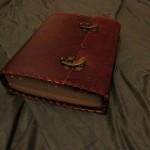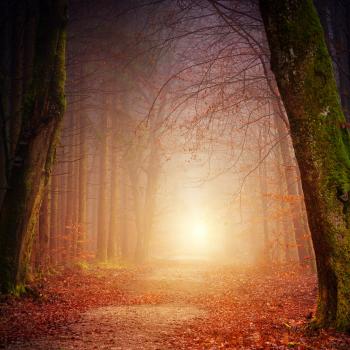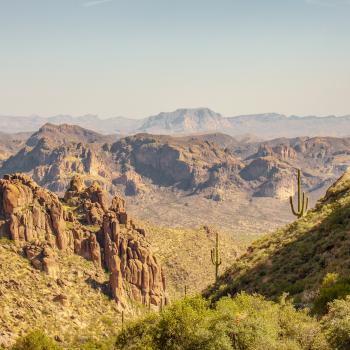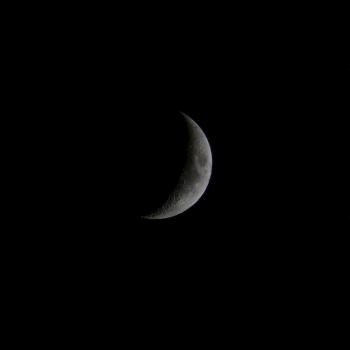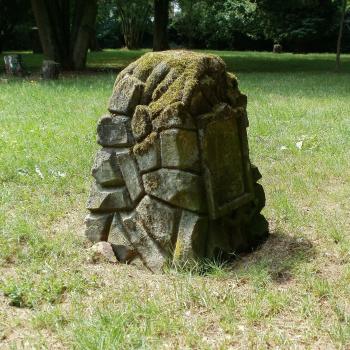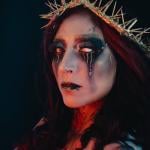Every Wednesday, we’ll go over basic concepts and important practices in the Otherfaith. Join us every Wednesday to learn more about the gods and their religion.
(Though I will do my best to present the Basics series in a logical order, they won’t be perfect. The Otherfaith is only four years old, after all, so we’re a little rough along the edges. If you have suggestions on how or what material should be presented, please speak up!)
About Divinity
In the Otherfaith, we have our Four (+2) Gods and a whole host of spirits, as is normal in many polytheistic religions. Most of our gods are gifted their divinity, however, not born with it.
And godhood, to the Four, means responsibility.
Our only god with ‘inherited’ divinity is the Clarene, and her relationship with her mother is contentious at best. (In part because she defies her mother – and more than just that once instance.) The other gods – Laetha, Ophelia, Dierne, Ophelene, Laethelia – are gifted their godliness through the accomplishment of great acts. Or through great deaths. Or accidents that no one could have predicted.
In the faith, we hold that everyone has a spark of what could be a god, but that certain events or acts must take place for that spark to ignite into a flame. the Laetha is buried in the West’s soil and becomes the land itself (which is why it’s important that we don’t confuse the founder of the West for the West itself – her son is the land). the Ophelia is gifted with divinity through the love that the Clarene holds for her, a love that is ruinous and remarkable – or her deification comes from drowning in her own river, pulled under by sorrow and river weeds. (Because there is never just one story.) the Dierne is crowned after killing or being killed by his brother. And our Girl-Gods the Laethelia and Ophelene come into being by the gods literally crashing into each other.
But what are these gods? Just elevated spirits? We’ll delve more into what makes each of these gods a, well, god in their later posts, but for now, a god in the Otherfaith is an immortali spirit given honor for their power over our lives/their domains. They have certain responsibilities along with/connected to what they preside over. They are not omnipresent or omniscient.
Triad of Spirits – Greater, Younger, & Little
Along with the gods, we also have groups of faeries in the Otherfaith that we know as the Greater, Young, and Little Spirits. There are spirits that fall outside of these groups, and there are more categories for our faeries, but we’ll focus on these three to begin.
The Greater Spirits are the lovers or children directly tied to the Four Gods. These spirits might be called ‘demigods’ by others. They play important roles in the myths and are often given worship alongside or just after the Four Gods. They also, notably, hold their own against the gods and can be called to guard against the more vicious or frightening aspects of the gods.
One example of this is Adilene and the Laetha. Adilene is tied to the land of the West as well, being partly buried in it for all of eternity, and this connection allows her to confront the Laetha in ways the other spirits (and gods!) can’t. She can be called on to help calm the Laetha’s fires and also to ‘bridle’ him (a term we use here due to his connection to horses), and she also protects devotees from being eaten alive by his flames.
Greater Spirits are seen as dwelling just beside godhood, their sparks of divine power lit by their proximity to the deities that love or ‘bore’ them.
Younger Spirits are often the grandchildren and occasionally the adopted children of the gods. (Adopted and fostered children are seen as the same ‘birthed’ children in the West/Otherfaith, due to the amount of foster-age that occurs in the myths – it is more often for an adopted child to be a Greater Spirit than a Younger one.) the Ophelia’s family holds the most Younger Spirits, and they are notable for their position as challengers to the Otherfaith’s paradigms and assumptions. They come to us as questions, appearing as faery nonsense that turn our ideas on their heads. They often have inherent danger, such as Mallory who can bring death through touch. They are often outsiders in the myths, but they are also revered by the Other People. They teach us great lessons and have inherent worth, as we all do. They also show us how to have compassion for those we view as ‘monstrous’, how to have love that expands beyond our friends.
Little Spirits are named for their size – child-sized, to be precise. These small spirits are actually powerhouses, associated with pure elements (and while I don’t work with them, that does include elements from the periodic table). From children that spark and flare with electricity to pure fiery toddlers toddling about, the Little Spirits are cute and adorable and dangerous. Not because of intended malice, but because they are the epitome of fae-ness – alien to humans and often forgetting that our bodies don’t process like theirs do. They also can go toe to toe with the gods, most often unintentionally, but their raw power acts as a sort of ‘pure spark’. They’re associated with ‘faery lights’ in the Otherfaith.
Next week, in our basics post, we’ll cover how the gods and spirits speak to us, and who can speak or interact with them.
*
iImmortal here meaning ‘ever-lasting’, since many of our gods die and come back again, and again, and again. It’s also important to note the immortal bit, because not all or most spirits in the Otherfaith are immortal.
*
Wednesdays are Otherfaith Wednesdays/Thursdays-since-I-am-late on Tumblr, where you are invited to ask any kind of questions about the religion, the gods, or myths that you have. And for those who a little shy, anonymous asks are on.
We are also holding an Otherfaith discussion group every first Sunday of the month. Click here for more details, and send me a message or leave a comment if you would like to join!
New visitor and a little confused where to start? Head over to our About and Otherfaith pages, and then meander over to the beginning of our ‘basics‘ series. Any questions can be directed to my email [email protected].
[Want more of the blog? Follow through RSS to receive consistent updates!]


